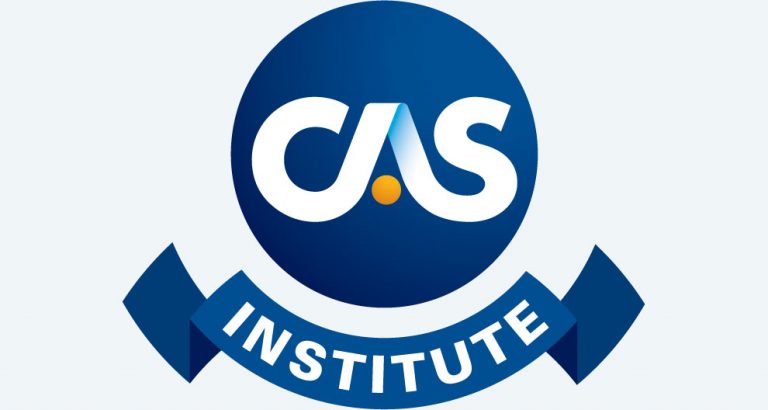
As development of The CAS Institute (iCAS) continues towards its fall 2016 launch, various aspects of the new credentialing program are being explored to best position the program to potential credential holders and those who will employ them.
The CAS Institute will offer its first specialty credential in data science and predictive analytics to meet the growing demand among insurance professionals for resources to develop and demonstrate their expertise in that area. Other iCAS credentials for specialty practice areas will also be developed. While the CAS is gathering input from many sources, one key group — employers — will be a critical determinant of the credentialing program’s success. If employers welcome and support building staff knowledge and competencies as certified experts in data science and predictive analytics, then the program will flourish.
Recognizing the importance of understanding employers’ views, and with a desire to build credentialing programs that will meet their needs, The CAS Institute was the focus of a recent discussion of the CAS Employer Advisory Council (EAC). The discussion focused on the first planned offering in the area of data science and predictive analytics.
The Employer Advisory Council Feedback
Formed in early 2014, the EAC’s mission is to understand employers’ expectations for their CAS-credentialed professionals and assess the CAS’s performance in delivering on those expectations. The EAC meets quarterly, including one in-person each year, and its meetings are facilitated by CAS Past President Pat Teufel, chair of the Employer Outreach Committee. The Council is made up of 12 members, representing a range of employers from large consulting firms to small insurance companies.
The EAC has been engaged for feedback on a wide variety of CAS initiatives, such as “travel time” for candidates (they think that five to seven years to Fellowship is just about right) and the affordability of CAS continuing education seminars (they’ve pushed the CAS to offer more lower cost options like webinars and live web-streaming from in-person events). But it is the new iCAS credentialing program that has garnered the most interest among the company representatives, given the importance of building a strong predictive analytics capability in an increasingly competitive marketplace.
Following are some of the highlights of the EAC’s discussion on the first iCAS credential.
Will non-actuarial professionals in your organization be interested in obtaining the iCAS credentials?
Many non-actuaries doing data science work in insurance have post-graduate degrees in statistics, but they don’t have a lot of knowledge of the insurance business. Several employers said that non-actuaries would be interested in a curriculum offering a foundation of insurance knowledge, which would help them in working with their actuarial colleagues.
Would your organization support and encourage employees to pursue these credentials?
Employers are generally supportive of professional development for their employees, and EAC members offered positive comments of support.
Taking it one step further, would you recommend that your organization support The CAS Institute credentials by providing study time or completion bonuses or both?
This level of support will likely depend on the demand for the skill set. Since the demand for data science and predictive analytics skills currently outstrips the supply, the support that a company provides to those pursuing iCAS credentials is likely to match the support that the company currently gives to those pursuing CAS and CPCU credentials.
What are the primary benefits to you as an employer for your employees to obtain specialty credentials?
According to several employers, having a program available to certify expertise in the field will be helpful — especially as companies build their data science departments “from the ground up.”
Many companies develop professional education opportunities for staff in-house. One primary benefit of The CAS Institute is that it will provide another avenue for professional development, perhaps reducing the need to rely on in-house development programs.
EAC member were in general agreement on the usefulness of iCAS credentials in talent management. When employers are recruiting for specialty technical areas, there are unknowns about the skills of new hires. Therefore, the iCAS credentials can serve as a baseline for specialty expertise.
While iCAS credentials are geared to non-actuaries, how would your company benefit from having your credentialed actuaries earn specialty credentials?
Employers agreed that predictive modeling has become a core skill for actuaries. Actuaries need to understand the basics regardless of how much they plan to focus on predictive modeling during their careers. For those actuaries who work in specialized practice areas, earning an iCAS credential will provide a deeper coverage of the area than can be obtained through the actuarial exams.
Small to mid-size companies that don’t necessarily have the scale to hire a separate team of data scientists would also likely benefit. The CAS Institute could help those companies’ actuarial teams develop skills that might be covered by data scientists at larger organizations.
Continuing to Assess the Market Demand
The CAS Institute will look to confirm the qualitative feedback provided by the EAC as it examines the results of the comprehensive market research survey conducted for iCAS, which included a dedicated set of questions for employers.
A summary of the survey results will be shared in a future issue of Actuarial Review.













